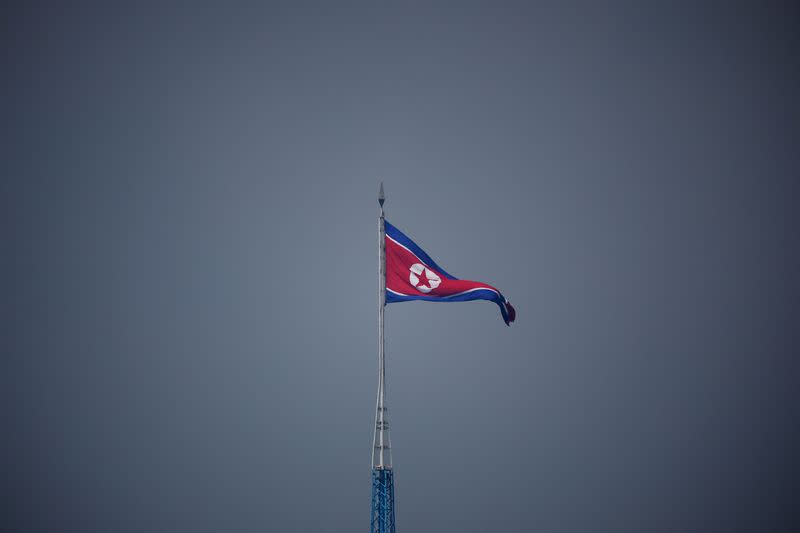North Korea fires ballistic missiles, South Korea, Japan say

- Oops!Something went wrong.Please try again later.
By Hyunsu Yim
SEOUL (Reuters) -North Korea fired "several" short-range ballistic missiles on Monday toward the sea off its east coast, South Korea's military said, drawing a swift condemnation from Seoul, which called it a grave threat to stability on the Korean peninsula.
A Japanese government alert and its coast guard also said North Korea had fired what appeared to be a ballistic missile. The projectile appeared to have landed outside Japan's exclusive economic zone area, the NHK broadcaster said.
South Korea's Joint Chiefs of Staff said the North launched what it suspected to be several short-range ballistic missile from near its capital, Pyongyang. The missiles flew about 300 kilometres (186 miles) and landed in the sea.
The U.S. Indo-Pacific Command said on Monday in a statement that it was aware of the ballistic missile launch, adding that it has assessed no immediate threat to U.S. personnel, territory, or allies from the missile launch.
The reports of the launch came as South Korea said its top military officer, Admiral Kim Myung-soo, had hosted the commander of U.S. Space Command, General Stephen Whiting, on Monday to discuss the North's reconnaissance satellite development and growing military cooperation between Pyongyang and Moscow.
After a summit between the two countries' leaders in September, North Korea has been suspected of supplying arms and munitions to Russia for its invasion of Ukraine, although both deny that claim.
The North is believed to be preparing to launch another spy satellite, after successfully putting a reconnaissance satellite in orbit in November.
North Korea said last week that it had fired a strategic cruise missile to test a large warhead, and a new anti-aircraft missile.
Earlier in April, the North fired a new intermediate-range hypersonic missile as part of its development of solid-fuelled missiles for all ranges of its arsenal, overseen by its leader, Kim Jong Un.
"North Korea is all-in on rapid weapons development, not just for military advantage, but also for the Kim regime’s techno-nationalist political legitimacy," said Professor Leif-Eric Easley of Ewha University in Seoul.
The North has defied a ban by the United Nations Security Council on developing ballistic missiles, rejecting Council resolutions as infringing on its sovereign right to defend itself.
Russia last month vetoed the annual renewal of the monitoring of sanctions imposed against North Korea, leading U.S. and South Korean officials to accuse Moscow of emboldening Pyongyang. China abstained from the Security Council vote.
Russia and China, which had both voted to approve all Security Council resolutions against the North, have tried unsuccessfully to require the sanctions to be renewed annually.
(Reporting by Hyunsu Yim in Seoul and Rocky Swift in Tokyo; Writing by Jack KimEditing by Kim Coghill, Gerry Doyle and Toby Chopra)

